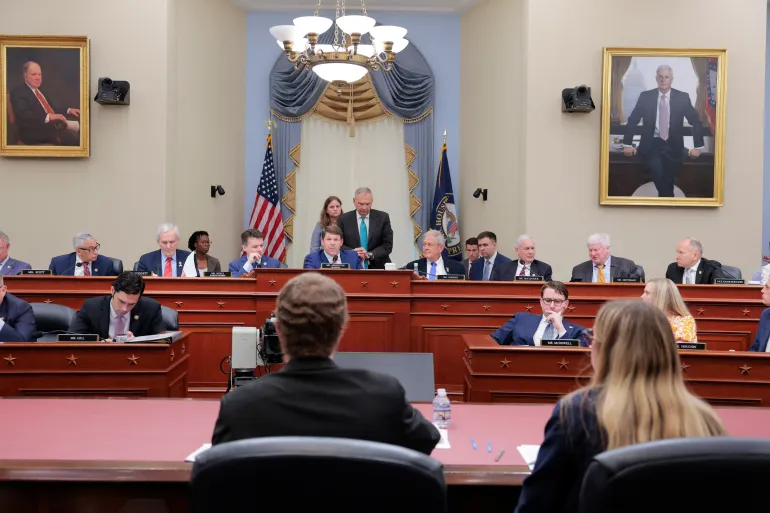Revised House Reconciliation Bill = Tax Benefits!

As we discussed last week, early on the morning of Thursday, May 22, 2025, the U.S. House of Representatives (House) narrowly passed, by a vote of 215-214, a revised reconciliation bill, which will now go to the U.S. Senate.
To get the revised bill passed, the House waived a clause in its rules which requires 60% of House votes approving any increase to Federal income tax rates. While many of the revised bill’s provisions result in tax breaks, new or pertaining to provisions enacted under the Tax Cuts and Jobs Act of 2017 (TCJA) there are also some increases, as well as cuts, which were not included in the initial legislative package. A motion opposing the waiver was defeated in an 8-4 vote by the House Rules Committee.
Last week’s post focused on provisions of particular import to the real estate investment industry, namely, changes to Sections 179, 168, and 199A, but the changes to those Sections, as well as many others, are of more general interest as well.
Read our post from last week here.
Again, a significant portion of the changes relate to extending or making permanent, or adjusting, some of the provisions of the TCJA, which will be good news to many of us, if enacted.
Among the highlights of the revised tax provisions we didn’t include in last week’s post are:
Making TCJA Tax Rates & Brackets Permanent
 The revised language would permanently codify the TCJA’s adjusted income thresholds (as adjusted annually for inflation), preventing currently scheduled rate increases after 2025.
The revised language would permanently codify the TCJA’s adjusted income thresholds (as adjusted annually for inflation), preventing currently scheduled rate increases after 2025.
The revised bill maintains the seven-tier structure (10% to 37%) established under the TCJA.
Other TCJA-Related Individual Tax Provisions
 The revised bill would also provide for making permanent:
The revised bill would also provide for making permanent:
- The standard deduction level, currently $15,000 for individual filers and $30,000 for married joint filers, which would also get a temporary boost for tax years 2025 through 2028 of $1,000 and $2,000, respectively.
- The personal exemption elimination.
- The $750,000 purchase price limit on deductibility of home mortgage interest.
- The exclusion of interest paid on home equity loans from deductibility.
- The state and local tax (SALT) cap, though the cap would rise from its current $10,000 to $20,000 for single filers and $40,000 for married joint filers, phasing down to $30,000 for those with modified adjusted gross income (MAGI) of over $500,000 for married joint filers and $250,000 for single filers. For tax years between 2026 and 2033, the income threshold for the $40,000 deduction and the income at which taxpayers would be eligible only for the $30,000 deduction would increase by 1% annually, remaining at the 2033 level for future tax years.
- The child tax credit of $2,000 per child, which would increase to $2,500 for tax years 2025 through 2028, and adjust for inflation for tax years from 2029 onward.
Proposed temporary changes, effective for tax years 2025 through 2028. include:
- Tip income would be excluded from taxable income for those in industries which have traditionally afforded such income. For highly paid employees, however, this deductibility would not apply.
- Overtime pay, or the portion representing wages over and above the usual hourly wage, would also be excluded from taxable income. Again, the highly compensated (those among them who actually receive overtime pay) would be ineligible for the deduction.
- An increased standard deduction bump for those over age 65 (currently $2,000) by $4,000 for the four tax years noted.
The revised bill also rescinds the Section 68 limitation on itemized deductions, but new limitations replace it, based on the taxpayer’s income for the applicable year.
Further, it repeals the $7,500 electric vehicle tax credit for new vehicles purchased after December 31, 2026, and the $4,000 credit for used vehicles purchased after December 31, 2025.
Business Tax Provisions
 Again, we discussed changes to Sections 179, 168, and 199A in last week’s post.
Again, we discussed changes to Sections 179, 168, and 199A in last week’s post.
The changes proposed to these sections of the tax code can offer significant opportunities for businesses to which they apply.
Most of the other tax news pertaining to the revised bill is not as good for businesses.
Net operating loss (NOL) carryforwards for non-corporate filers would require treatment of “excess” business losses precisely as―business losses, rather than as net operating loss, as previously allowed.
Some provisions tighten existing limitations rules, including those pertaining to:
- SALT limitation workarounds. If your business is eligible for Section 199A treatment, breathe easy―these won’t affect you.
- Non-corporate loss limitations.
- The Section 162(m) limitation concerning executive compensation.
There would also be repeal of a number of energy-related incentives, although the clean fuel production credit established under the previous Administration and newly in force for the current tax year 2025, would be expanded, rather than eliminated.
Temporary business tax provisions include:
- Restoration of the 100% bonus depreciation for short-lived investments, effective for tax years 2025 through 2029.
- Increase of the deduction limitation for qualified depreciable property (Section 179) to $2.5 million (from $1 million), with the phase-out threshold raised to $4 million.
- Restoration of immediate expensing for research and development conducted in the U.S. for the same period.
- Allowing expensing of 100% of qualifying structures in the manufacturing, extraction, and agricultural fields, providing construction begins prior to December 31, 2028, and the structure is placed in service before December 31, 2032.
Of course, these are only highlights, and by no means exhaustive. And how a final resolution bill might look, after any Senate changes (the Senate has indeed indicated it will make changes) and the inevitable horse-trading between the two Chambers, thereafter, is certainly up in the air for now.
However, it never hurts to think ahead, and plan contingencies.
We invite you to consult our experts on tax planning. We would be delighted to help you determine potential personal and / or business scenarios based on various assumptions and assist your navigation through them.
Please click here to email us directly–Rigby Financial Group’s trusted, expert team are always at your service–that’s what we are here for! And serving your needs, wants, and goals is our passion―the reason we’re here at all is to be here for you!
Until next time –
Peace,
Eric
